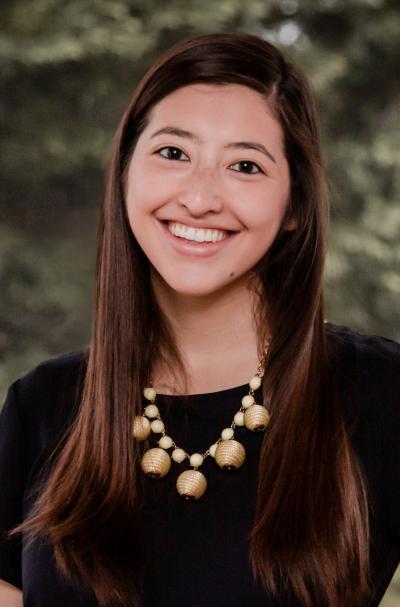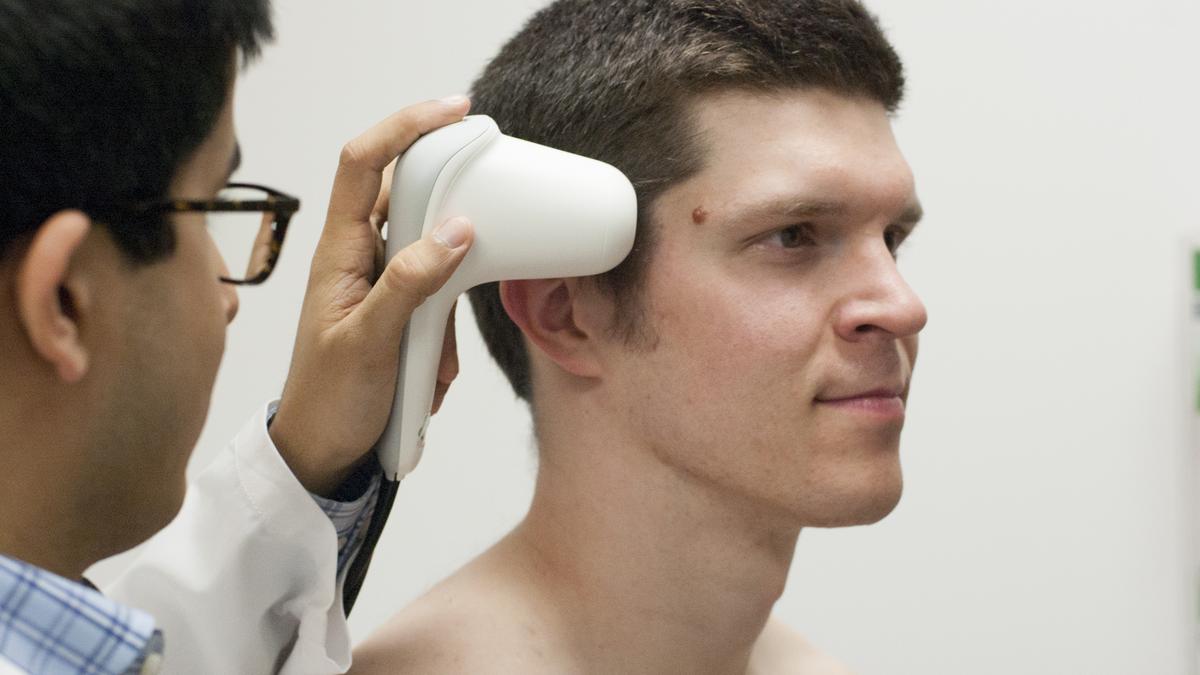SEAS Entrepreneur Q&A: Elizabeth Asai on Launching a Start-up

It was while working on a different project that Elizabeth Asai ’13 and Elliot Swart hit upon the idea for 3Derm Systems, the startup they founded while students at Yale. The 3Derm platform allows patients to take high-definition, standardized images of skin abnormalities and upload them to a telemedicine portal. Dermatologists with access to the portal can then assess the images and get a sense of whether the patient needs a referral for an in-person visit, and if so, how urgently the patient needs to be referred.
With advice from their Yale mentors, and a prototype that they developed for $400 using a 3D printing machine, they soon had the basis for their company. Within a few years, they had raised more than $5 million. Fast forward to 2020 and 3Derm was acquired by Digital Diagnostics, an Iowa-based company specializing in autonomous AI systems for healthcare, where Asai now works as Vice President of Dermatology and Swart is Chief Architect.
As part of our SEAS-to-Entrepreneur series, we spoke with Asai about her time at Yale, launching a start-up company, and her advice for aspiring entrepreneurs.
 Did you come to Yale with the goal of starting a business?
Did you come to Yale with the goal of starting a business?
I think the world has changed a bit since I was in college, and a lot more people are going to college thinking they want to launch a startup. But I definitely was not in that camp. Elliot was - he came from Palo Alto, so everyone he knew already had a startup by the time we graduated from college [laughs]. I thought I was going to med school or into the healthcare business, which I guess is where I ended up. But I didn’t think I would do something as risky as this.
How did your project get started?
We were working on a completely different project. We had received funding from SEAS to buy some supplies we needed to make a surgical probe prototype. Halfway through that project, we heard about a competition [sponsored by the Center for Integration of Medicine and Innovative Technology in Boston] that focused on primary health care. We couldn’t enter with the surgical device, but we thought we could adapt some of the 3D imaging technology we had started to develop. Dermatology happened to be something that we knew a little about, so we thought there might be potential there if we could crack the standardized imaging piece. We talked to a dermatologist at the Yale School of Medicine who seemed really excited about the idea. They thought the 3D part was cool, but what they really wanted was a standardized image so they could triage patients remotely, because at that point, they had a really long wait time for new patients.
You won $100,000 in the competition, and then what?
Then we entered a bunch of other competitions. That was our game plan for the first couple years - win competitions, and at a point, we had a bank account built up from different grants. We’d been told by a lot of people that we couldn’t keep making devices by hand, so the next critical step was to work with a medical device manufacturer.
When did you realize this could be the basis of a startup?
We had a lot of really good feedback early on from people who mattered a lot. We were meeting doctors and different engineers - people from the healthcare world who seemed to really get behind this idea. They were telling us ‘You’re onto something - this is a big issue.’ That kind of feedback from people who were way smarter than we were was good validation.
You majored in biomedical engineering, and Elliot was electrical engineering and computer science. How important was having that combination?
 That was huge. Between the two of us, we covered most of the base technical knowledge we needed to get started. As most people in the startup world will tell you, hiring tech talent is really hard early on because you’re competing with all of the other cool stuff that engineers can go work on, and engineers are really expensive. So the fact that we could prototype and get stuff out there on our own was a game changer at the beginning. Then, the key pieces missing were on the business side and anything to do with commercialization. But that's where we found a ton of really good mentors.
That was huge. Between the two of us, we covered most of the base technical knowledge we needed to get started. As most people in the startup world will tell you, hiring tech talent is really hard early on because you’re competing with all of the other cool stuff that engineers can go work on, and engineers are really expensive. So the fact that we could prototype and get stuff out there on our own was a game changer at the beginning. Then, the key pieces missing were on the business side and anything to do with commercialization. But that's where we found a ton of really good mentors.
You got a lot of support from Yale, including SEAS, the School of Dermatology and the Yale Entrepreneurial Institute (YEI).
That was really nice. I don't know how many other schools do anything like what Yale did for us in the early days. They saw promise in this and wanted to see if this could work, so people opened doors for us. We were the youngest people to get the NSF’s small business innovation research grant. We had three tenured professors who had gotten tons of these grants over their careers, and they read our application and gave feedback. People who are mid-career applying for these grants would kill to have that kind of access. We were 20 years old and didn’t know how lucky we were.
Of the things you did early on, what would you say was particularly valuable?
I don't think this was intentional - I think it was out of desperation, but we relied on trusted mentors heavily. In those first few years, if someone came to us and said ‘I’ve already done this, and this is what you should do,’ we were great listeners. Listening was easy for us because we were so new and we really didn’t know anything. As you get older, it's harder to be a good listener. But I think that helped us a ton because those early advisers helped us avoid a lot of common missteps.

